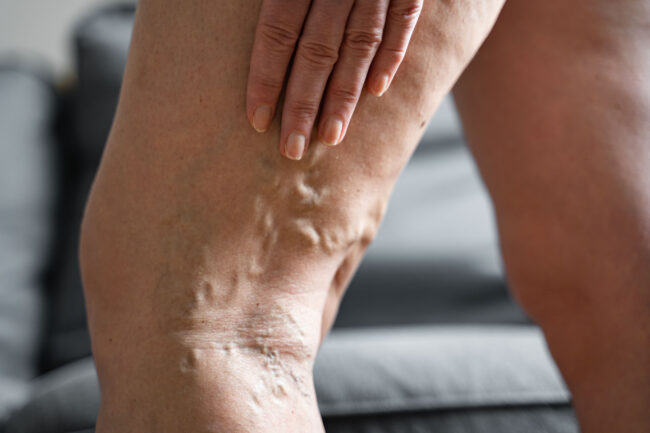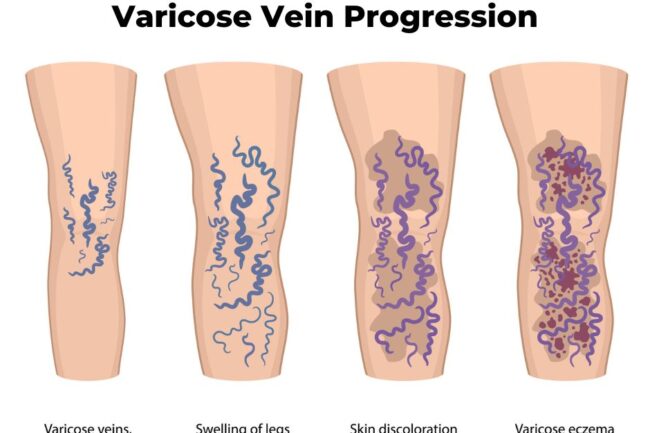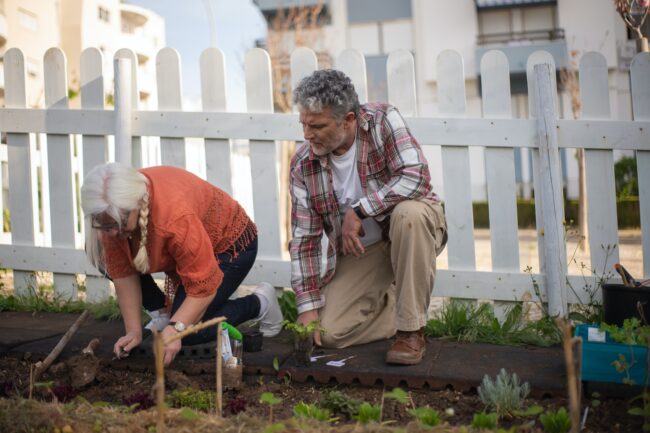Varicose veins are a medical condition. While often not dangerous, their twisted bulgy appearance and array of symptoms may affect your quality of life.
Just how much will largely depend on you and your lifestyle, but here’s a breakdown of what you might expect from the condition.
They might affect your self-esteem

Close up of varicose veins on the back of a person’s thigh
Varicose veins often appear as twisted, dark blue veins that protrude above the skin’s surface. And while it’s relatively easy to hide them in the winter, hotter weather can make covering up difficult.
That said, varicosities tend to develop in the big deep veins. These veins are found in the muscle, further from the skin surface. While the vein size contributes to the gnarly appearance, the location can sometimes prove lucky, as they may not be visible at all.
They’re often itchy, achy, and generally unpleasant
As we mentioned, varicose veins often come with uncomfortable symptoms which may affect your quality of life. These may include a feeling of heaviness or fatigue in the affected limb, burning sensations, itchiness, and even pain.
As with appearance, you might get lucky and not experience any symptoms, or very mild ones. And if you do have symptoms, you can minimise them through gentle massage, exercise, elevating your legs (or other affected area), and wearing compression socks.
However, you should note that symptoms may develop and even worsen over time.
They can cause dangerous conditions

An illustration showing the potential progression of varicose veins and their symptoms, if they’re left untreated.
On top of that, varicose veins may progress into much more unpleasant conditions. These may include:
- Venous eczema. This condition dries up, discolours, and toughens the skin around the affected area. And along with looking pretty nasty, eczema can lead to infections, as bacteria will be able to get through and build up in the damaged dermis.
- You might also develop Venous ulcers. These slow-healing sores will typically appear on the lower legs and form due to the blood building up and leaking out of a varicose vein into the surrounding tissue.
- Another problematic condition is oedema, where fluid builds up in the soft tissue surrounding the varicose vein, causing a sort of advanced and semi-permanent swelling.
- And lastly, Deep Vein Thrombosis (DVT). This condition is basically a deep vein blood clot, which develops over time, disrupting circulation. A DVT can also become extremely dangerous. If the clot springs off the vein wall, its location in the deep vein gives it a straight shot to the heart or lungs. And if it does travel to these organs, it might result in pulmonary embolism.
If you have a blood disorder, you’ll be more at risk of developing these conditions. But if you don’t, the chances of your varicose veins progressing to these stages are low. And adding the symptom management steps to your routine will further minimise the risk.
You can also always come to see us for a consultation so we can assess your condition and recommend additional steps.
How likely am I to get Varicose Veins in the first place?

Elderly couple gardening
Varicose veins form due to a condition known as chronic venous insufficiency. You’re more likely to develop it if:
- You’re a woman
- You’re over 40
- Your family has a history of varicose veins
- You lead a sedentary lifestyle
- You stand for long hours for work
None of these risk factors make it certain that you’ll develop the condition. They just increase the chances of it happening.
And will varicose vein treatment affect my life?
Yes and no. Nowadays, varicose vein treatments are often minimally invasive, only require local anaesthesia, and can be performed quickly. So, you’ll be walking in and out of the clinic within an hour and without much fuss.
However, you will need to take extra care of your veins post-treatment. Depending on your condition and treatment, you may need to:
- Take some time off work, if your role involves a lot of heavy lifting or standing
- Wearing compression stockings for a few days
- Making time to walk 30 minutes daily
- Checking the injection site for the first couple of days to make sure there’s no bleeding or infection
Additionally, recovery can be a bit uncomfortable, with some swelling, bruising, and achiness as common side effects. But generally, you’ll be able to make do with over-the-counter pain relief medication and elevation.
To sum up,
Varicose veins develop for various reasons and affect everyone differently. Those with the condition might not experience any ill effects. Or on the other side of the scale, they may develop ulcers or other highly unpleasant conditions.
So, we can’t say how exactly varicose veins will affect you if you get them. But, we hope we’ve given you a rough understanding of how the condition might appear.
And if you ever want to seek treatment, call us on 0420 102 637.
